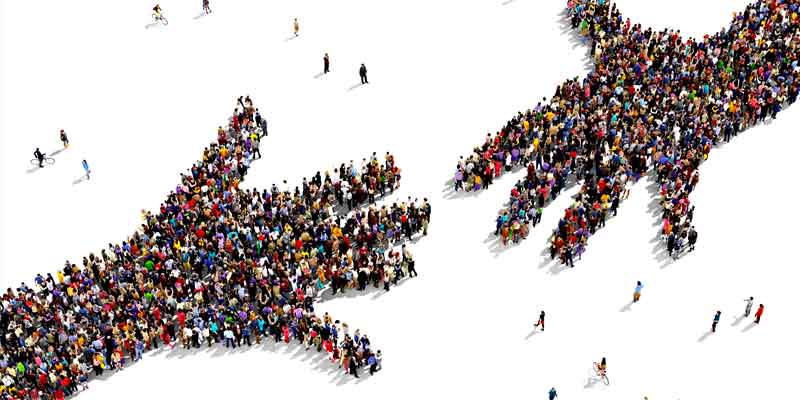Credit: Unsplash/CC0 Public Domain
AI is already changing the way many of us work, but in the delicate art of diplomatic relations between nations, a former diplomat has warned colleagues to be careful using the tool.
Dr. Donald Kilburg, who was a member of the US Department of State, says the technology is already shaping work for the likes of embassy officials whose jobs are to protect their country’s interests abroad.
But the US army veteran and retired professor warns that algorithms cannot “read the room,” and can’t replicate the “empathy, intuition and deep cultural understanding” of human diplomats.
He says, “AI can streamline diplomacy, but only humans bring the empathy and intuition that make negotiations succeed. Used wisely, AI can help diplomats get ahead and build stronger bridges between nations.”
The technology must be carefully monitored otherwise AI could “escalate tensions” or miss “crucial cultural nuances” during sensitive situations, he adds.
His book “AI Use Cases for Diplomats” cautions that basic notions of diplomacy and sovereignty are being challenged by the rise of AI.
As such, the author—who spent more than 20 years in foreign affairs—urges policymakers to act now to ensure AI does not replace human diplomacy but instead amplifies “its highest aspirations.”
“While they (AI systems) can draft initial responses to routine diplomatic communications or summarize lengthy policy documents in seconds, they lack the nuanced understanding of diplomatic protocol and cultural sensitivities that experienced diplomats possess,” says Dr. Kilburg, who was a Public Affairs Officer in the Bureau of Global Public Affairs.
“Over-reliance on AI, in scenarios where human qualities are essential, risks undermining the very objectives of diplomacy.
“It is therefore critical for embassies and diplomatic missions to establish clear boundaries for AI use. This would ensure that technology serves as a complement to, rather than a replacement for, human expertise.”
“AI Use Cases for Diplomats” is a practical field manual for diplomats and policymakers, showing how to harness AI to strengthen diplomacy while keeping human judgment at the center. It covers all aspects of AI use in diplomacy, including security and consular affairs.
The author describes diplomacy as “building bridges between nations through dialogue and negotiation” and that AI is reshaping the terrain upon which statecraft operates in the age of TikTok and Twitter.
But he is optimistic that the technology has “transformative” potential, from sharpening negotiation strategies to enabling unprecedented global collaboration. It can combat cyberattacks, detect deepfakes and overcome other modern challenges by providing solutions which go beyond traditional diplomatic approaches.
He explains, “The genie is out of the bottle, diplomats don’t have the option to ignore AI. The real challenge is to take hold of it now and learn to use it wisely.”
However, the book says the issue facing modern diplomats isn’t just learning to use AI effectively but when “not” to use the technology. This is especially an issue if algorithms are trained on Western diplomatic traditions, says the author.
AI can process vast amounts of data but Dr. Kilburg says it can’t grasp, for example, “the emotional weight of a grieving mother’s testimony” in peace negotiations. As such, the author identifies three areas for action—training and development, ethical frameworks, and global cooperation.
He recommends that diplomatic institutions such as embassies invest in AI training programs that balance technical skills with ethical awareness. Core values to follow in the event of ethical dilemmas must be based on diplomatic principles but also evolve with technology, adds Dr. Kilburg, who has a degree in experimental psychology.
As for global cooperation, he writes that climate change and other pressing issues mean coordinated global action is needed. AI can enable this but only if nations work together “to ensure equal access and ethical deployment.”
As AI and technology become part of everyday life, Dr. Kilburg says the essential question facing those engaged in the art of statecraft is: “Will tomorrow’s diplomats represent nations—or algorithms?”
More information:
Donald Kilburg, AI Use Cases for Diplomats, (2025). DOI: 10.1201/9781003612308
Citation:
How AI can build bridges between nations, if diplomats use it wisely (2025, August 28)
retrieved 28 August 2025
from https://phys.org/news/2025-08-ai-bridges-nations-diplomats-wisely.html
This document is subject to copyright. Apart from any fair dealing for the purpose of private study or research, no
part may be reproduced without the written permission. The content is provided for information purposes only.

